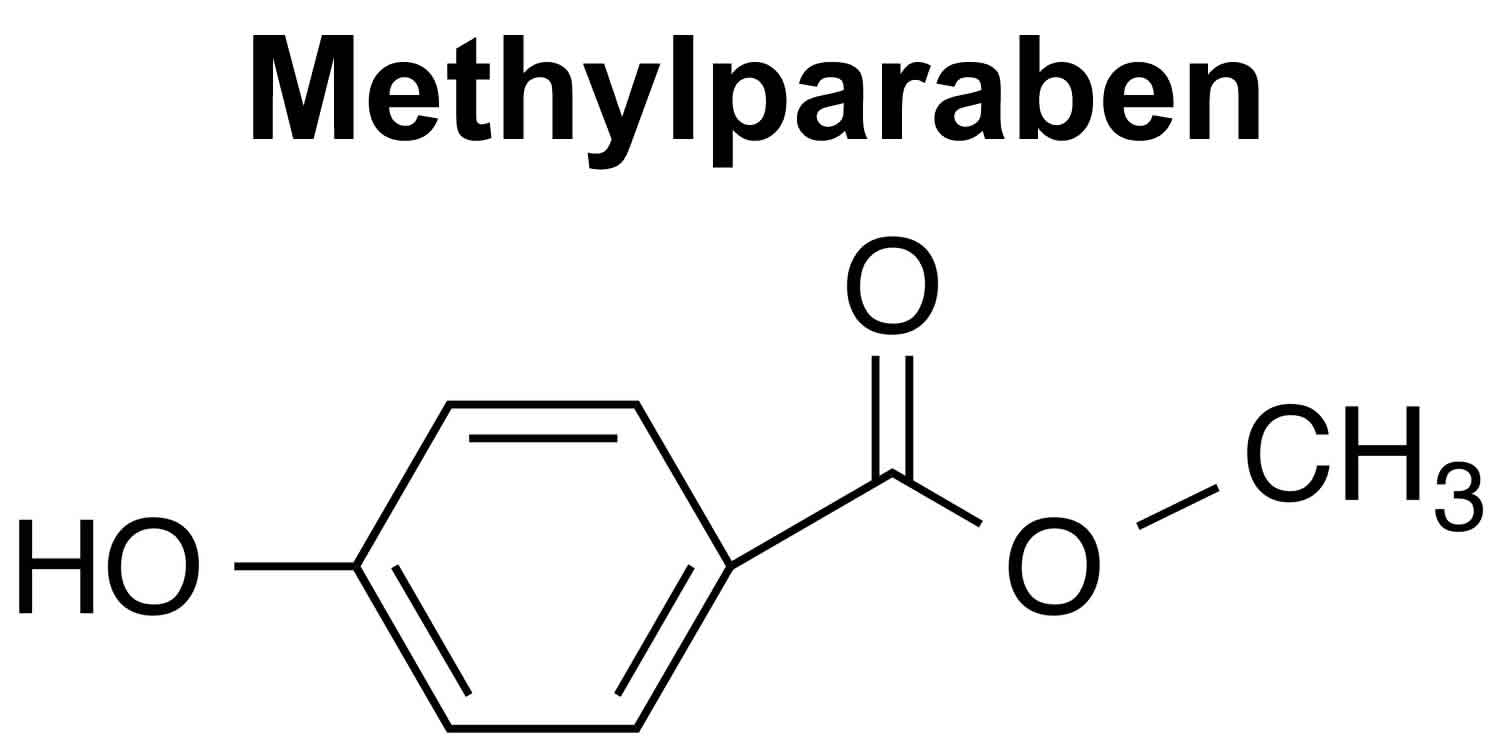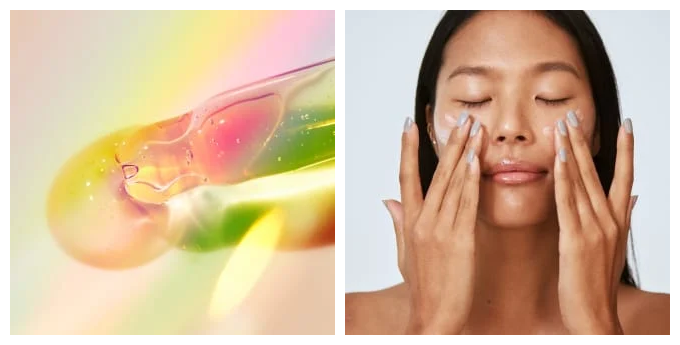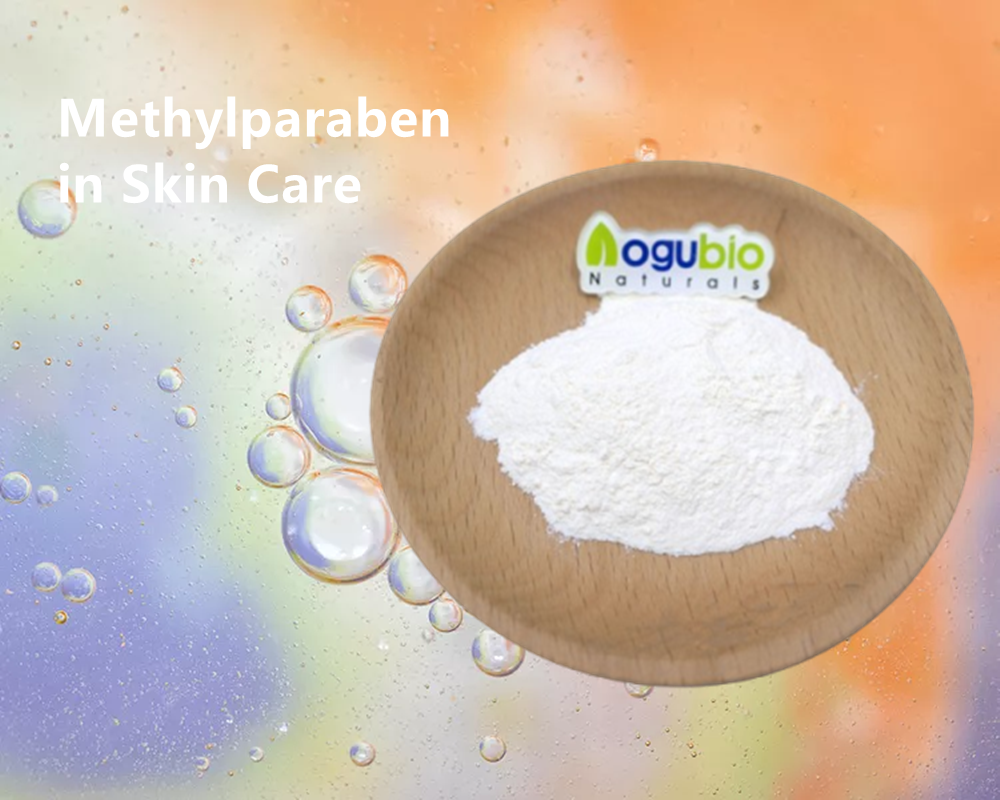What is Methylparaben?
Methylparaben is one of the most popular preservatives in beauty products and food items. The ingredient occurs naturally in a handful of fruits—like blueberries—though it can also be created synthetically.1 It's found in everything from cream cleansers and moisturizers to primers and foundations and helps these products maintain their effectiveness. Rabach says that it's chock-full of anti-fungal and antibacterial properties, which work wonders to extend the shelf life of skincare, haircare, and cosmetic products.

Benefits of Methylparaben
Methylparaben is used to preserve the formula of a skincare product and is therefore not directly beneficial to the state of your skin's health.
- Prevents fungus growth: Thanks to its antibacterial properties, Rabach says that methylparaben is a preservative that is added to many creams and cosmetic products to prevent fungus from growing.
- Preserves ingredients: Given the way methylparaben prevents fungus from growing within creamy formulas, it's able to preserve ingredients and help consumers get the most out of their cosmetic purchases.
- Is antibacterial: Since it's a preservative, González says methylparaben is effective at preventing microbial growth and germs such as bacteria and mold in skincare and cosmetic formulations.

Supplement:
METHYLPARABEN
- TYPE OF INGREDIENT: Preservative
- MAIN BENEFITS: Prevents fungus growth, preserves ingredients, creates antibacterial formulas.
- HOW OFTEN CAN YOU USE IT: Methylparaben is found in many daytime and nighttime products. As such, it can be used multiple times per day.
- WORKS WELL WITH: Since methylparaben lengthens the 'shelf-life' of ingredients, dermatologists say that it works well with all ingredients.
- DON’T USE WITH: Methylparaben is generally safe to use with all ingredients thanks to its preserving
Who Is It Suitable For?
Methylparaben is generally suitable for use on all skin types. The exception: Those with sensitive, allergic, and/or eczematous skin.
How to Use It

Using methylparaben is as simple as performing your regular AM and PM skincare routine. Since the preservative is in most creamy formulations, there's a pretty good chance that you've been using methylparaben without realizing it. What's more, considering it's in both daytime and nighttime formulas, it's safe to use daily, not to mention multiple times per day. Again, the only cause for concern is if you have reactive skin, in which case, you should check your labels for methylparaben to see if frequent use of the ingredient could be leading to any disruptions in the skin.
Parabens are a group of controversial preservatives that include butylparaben, isobutylparaben, propylparaben, methylparaben, and ethylparaben. All of these were at one time the most widely used group of preservatives used in cosmetics. Parabens were so popular because of their gentle, non-sensitizing, and highly effective profile in comparison to other preservatives but also because they were derived naturally from plants, a rare phenomenon for a preservative. Parabens are found in plants in the form of p-hydroxybenzoic acid (PHBA), a chemical that breaks down to become parabens for a plants own protection.
Over the past 10 years parabens have become criticised and condemned for use in cosmetics due to their alleged relation to health concerns affecting women and men. The research about parabens is conflicting and polarising. Some research indicates they are safe as used in cosmetics and are preferred over other preservatives to keep a formula stable. These studies also showed parabens did not have any effect when compared to natural hormones in the body.
However, other research has concluded they are indeed problematic: Some studies determined a 100% concentration of parabens caused skin samples (meaning not intact skin on a person) to break down. However, these studies don’t apply to the tiny amount (1% or less) of parabens typically used in cosmetics. In low amounts, parabens were not shown to harm skin; in fact, they offer a benefit due to their ability to thwart the growth of mold, fungi, and harmful pathogens.
Other studies casting parabens in a negative light were based on force-feeding them to rats, a practice that is not only cruel but unrelated to what happens when parabens are applied to skin. There are studies indicating absorption of parabens through skin associated with application of skincare products, but those studies did not take into consideration that parabens are still used as food-grade preservatives or found naturally in plants and that could have been the source not the cosmetics. We also looked at studies showing other questionable effects but those were done in vitro meaning in a petri dish or, again, animal studies in species whose biologic makeup does not closely relate to people.
We appreciate the concern about parabens and understand if people choose to avoid them. At Paula’s Choice Skincare we use parabens in a very limited number of products, but that decision is based on other reasons than the scare tactics rampant on the internet. For transparency, we list all ingredients on individual product pages and packaging and our Client Services team is always happy to help.
Article writing:Niki Chen
Post time: Apr-02-2024




